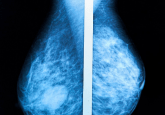Digital assay may aid earlier detection of liver cancer
In a study published recently in the Proceedings of the National Academy of Sciences, a team of researchers have developed an assay enabling them to better detect circulating tumor cells (CTCs).
CTCs are shed into the bloodstream by invasive cancers but the difficulty in identifying these rare cells by microscopy has hindered their routine use in screening or monitoring for cancer. For this reason a team from Massachusetts General Hospital (MA, USA) have developed an assay that combines CTC-iChip with a RNA-based digital polymerase chain reaction (PCR) which they hope will aid in the detection of CTCs.
As hepatocellular carcinoma (HCC) is derived from liver cells bearing a unique gene expression profile, the team choose to test their assay on patients already suffering from HCC, normal healthy individuals and those at high risk of developing the disease.
Currently, alpha-fetoprotein screening is used to determine the presence of HCC. Previous studies of combining alpha-fetoprotein with more specific assays such as ultrasounds have shown a dramatic improved diagnosis of at-risk patients, leading to a 37% drop in mortality. However, this method is not widely available for those in developing countries which bear the greatest burden of HCC.
In order to develop their digital PCR assay the team identified ten liver-specific RNA transcripts expressed in HCC cells. Results from the digital PCR indicated a higher level of HCC-associated RNA transcripts in blood samples from patients with HCC in comparison with those with other cancers, chronic liver diseases or healthy controls. The team also demonstrated that positive CTC scores decline in treated patients.
Co-lead author Mark Kalinich (Massachusetts General Hospital) reported: “Our test provides highly specific detection of cancer in patients with HCC, compared with healthy individuals and with those at high risk for developing the disease. These results hold promise for both early detection of HCC and for the monitoring of treatment over time.”
“Although there are major hurdles to global implementation of CTC-based digital PCR to screen for HCC, we believe they are surmountable” concluded Kalinich. The teams of researchers are planning to conduct further studies including large-scale trials, expanding the number of HCC-related RNA transcripts and monitoring treatment for other forms of cancer.
Sources: Kalinicha M, Bhana I, Kwan TT et al An RNA-based signature enables high specificity detection of circulating tumor cells in hepatocellular carcinoma PNAS doi: 10.1073/pnas.1617032114 (2016); Massachusetts General Hospital press release www.massgeneral.org/about/pressrelease.aspx?id=2043




